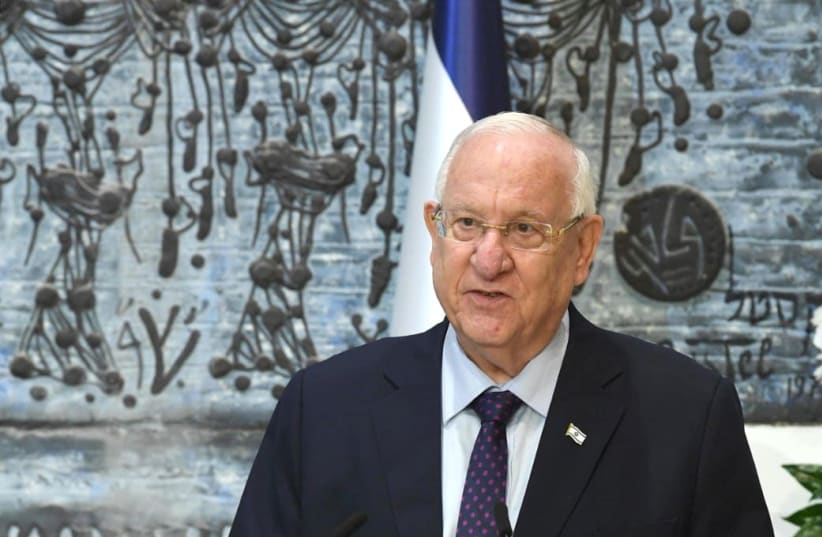President Reuven Rivlin intends to use all the time at his disposal to appoint a candidate to build a new governing coalition, President's Residence director-general Harel Tuvi told The Jerusalem Post in an interview on Sunday night.
Tuesday's election results will be formally presented to Rivlin by the head of the Central Elections Committee, Supreme Court Judge Uzi Vogelman on March 31 after the counting of some 600,000 double ballots of emissaries, soldiers, prisoners, those quarantined and sick from COVID-19 and those returning from abroad on Election Day and voting at Ben-Gurion International Airport.
"No action will be taken until the results will be clear, official and final," Tuvi said.
Rivlin will then begin consultations with faction representatives to hear their recommendations about who should form the next government.
The deadline for Rivlin to give his 28-day mandate to build a coalition is April 7. Sources close to him said that unlike after other elections when he expedited the process, this time, he will take his time to help facilitate it better.
"After the first couple of elections, he didn't wait for the final results because the public interest was to end uncertainty as soon as possible," Tuvi said. "This time, there are double envelopes and other complications from corona, so the president said he would not start the consultations until we really know the official results," he said. "This time he will also encourage the parties to talk among themselves first and let the situation settle."
The first candidate who receives a mandate to form a government can ask for a two-week extension. If there is a second candidate, he received no more than four weeks.
Rivlin's term is set to end on July 9. It is possible a new president-elect could be chosen by the Knesset while a second candidate has the mandate. But Tuvi said Rivlin's decisions and timetable will not be impacted by the race for his successor.
Tuvi denied reports that Rivlin would not consider giving the mandate to Prime Minister Benjamin Netanyahu due to Netanyahu's criminal indictments.
"The president will be guided by the decision of the nation," Tuvi said. "He has wide considerations and can choose among many options but he cannot go against a clear decision by the nation."
